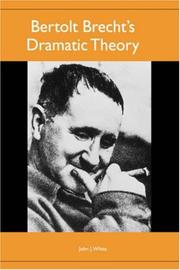| Listing 1 - 4 of 4 |
Sort by
|
Book
ISBN: 3110545373 3110545926 9783110545371 9783110545937 3110545934 3110542099 9783110542097 Year: 2017 Publisher: Berlin, [Germany] ; Boston, [Massachusetts] : De Gruyter,
Abstract | Keywords | Export | Availability | Bookmark
 Loading...
Loading...Choose an application
- Reference Manager
- EndNote
- RefWorks (Direct export to RefWorks)
Oper und Aufklärung bilden keineswegs einen Widerspruch, sondern stehen in einem produktiven Verhältnis zueinander; nicht zufällig ist die Gattung ein bevorzugtes Streitobjekt der Aufklärer. Am bündigsten kommen diese Debatten in Francesco Algarottis 'Saggio sopra l'opera in musica' zum Ausdruck, einer Schrift, die zuerst 1755 erschien und bald in ganz Europa Verbreitung fand, heute aber so gut wie vergessen ist. So elegant wie scharfzüngig führt Algarotti darin seine Vorstellungen von einer grundlegenden Reform der Oper nach den Maßgaben einer aufgeklärten Ästhetik aus, wobei er auch auf seine Erfahrungen als spiritus rector der friderizianischen Oper in Berlin und Potsdam zurückgreifen kann. In vorliegendem Band werden diese Schrift und ihre weitreichenden Wirkungen von Literatur-, Musik- und Theaterwissenschaftlern sowie Philosophiehistorikern erstmals umfassend analysiert und kontextualisiert. Hinzu kommt eine kommentierte Edition der am weitesten verbreiteten Fassung des 'Saggio' sowie ihrer einflussreichen deutschen Übersetzung durch den umstrittenen Aufklärer Rudolf Erich Raspe.
Aufklärung. --- Enlightenment. --- Kulturtransfer. --- Oper. --- Opera. --- Theatertheorie. --- cultural transfer. --- theater theory. --- Algarotti, Francesco, --- Opera
Book
ISBN: 9782705682521 270568252X Year: 2012 Volume: *3 Publisher: Paris: Hermann,
Abstract | Keywords | Export | Availability | Bookmark
 Loading...
Loading...Choose an application
- Reference Manager
- EndNote
- RefWorks (Direct export to RefWorks)
Roland Barthes ne s'est pas d'abord intéressé à la question de la théâtralité. Il n'en est pas non plus devenu à proprement parler un théoricien. Mais il a poussé la réflexion au-delà des catégories, des champs et des objets attendus. Il s'est d'abord intéressé au théâtre. Au théâtre joué, organisé, monté et au théâtre des signes que se donne une pratique pour exister, se transformer et se faire reconnaître. L'analyse des pratiques a commencé avec la littérature ; elle s'est poursuivie avec le théâtre et la mythologie. C'est dire que Barthes ne pouvait interroger du théâtre que le théâtre, un redoublement qu'il lui est arrivé de nommer la théâtralité. C'est dire aussi que cette théâtralité se trouve partout. Se trouve-t-elle partout identique à elle-même ? Autrement dit, la théâtralité est-elle indifférente au support qu'elle modalise ? Peut-on en donner une définition exclusive ? Quel est l'enjeu, quelle est la fonction, quelle est la valeur de son application obstinément hétérogène ? Quel concept déterminé du théâtre présuppose-t-elle ? Quel apport à la réflexion esthétique fournit-elle ?
Theater --- Aesthetics --- Théâtre --- Esthétique --- Barthes, Roland, --- Barthes, Roland --- Criticism and interpretation --- Theater theory --- Theater analysis --- 20th century --- Théâtre --- Esthétique --- Barthes, Roland. --- Barthes, Roland - Criticism and interpretation --- Theater theory - Theater analysis - 20th century.

ISBN: 1571130764 9786611741297 1281741299 1571136355 Year: 2004
Abstract | Keywords | Export | Availability | Bookmark
 Loading...
Loading...Choose an application
- Reference Manager
- EndNote
- RefWorks (Direct export to RefWorks)
As an integral part of his work as a political playwright and dramaturge, Bertolt Brecht concerned himself extensively with the theory of drama. He was convinced that the Aristotelian ideal of audience catharsis through identification with a hero and the resultant experience of terror and pity worked against his goal of bettering society. He did not want his audiences to feel, but to think, and his main theoretical thrusts - 'Verfremdungseffekte' (de-familiarization devices) and epic theater, among others - were conceived in pursuit of this goal. This is the first detailed study in English of Brecht's writings on the theater to take account of works first made available in the recent German edition of his collected works. It offers in-depth analyses of Brecht's canonical essays on the theater from 1930 to the late 1940s and early GDR years. Close readings of the individual essays are supplemented by surveys of the changing connotations within Brecht's dramaturgical oeuvre of key theoretical terms, including epic and anti-Aristotelian theater, de-familiarization, historicization, and dialectical theater. Brecht's distinct contribution to the theorizing of acting and audience response is examined in detail, and each theoretical essay and concept is placed in the context of the aesthetic debates of the time, subjected to a critical assessment, and considered in light of subsequent scholarly thinking. In many cases, the playwright's theoretical discourse is shown to employ methods of 'epic' presentation and techniques of de-familiarization that are corollaries of the dramatic techniques for which his plays are justly famous. John J. White is Emeritus Professor of German and Comparative Literature at King's College London.
Brecht, Bertolt --- Aesthetics --- Knowledge --- Performing arts --- Theater --- History --- 20th century --- Brecht, Bertolt, --- Aesthetics. --- Performing arts. --- Brecht, Berthold Friedrich --- Brecht, Bertolt. --- Brecht, Bertholt --- Brecht, Bert --- Brecht, Eugen Berthold Friedrich --- Audience Catharsis. --- Bertolt Brecht. --- Epic Theater. --- Political Playwright. --- Theater Theory.
Book
ISBN: 1800101295 0985195673 Year: 2019 Publisher: Rochester, New York : Camden House,
Abstract | Keywords | Export | Availability | Bookmark
 Loading...
Loading...Choose an application
- Reference Manager
- EndNote
- RefWorks (Direct export to RefWorks)
Annual volume, this time featuring special sections on Brecht's dramatic fragments and on comedy in post-Brechtian theater, along with a variety of other contributions.
Brecht, Bertolt, --- Brecht, Berthold Friedrich --- Brecht, Bertolt. --- Brecht, Bertholt --- Brecht, Bert --- Brecht, Eugen Berthold Friedrich --- Criticism and interpretation. --- German literature. --- DRAMA / European / German. --- Bertolt Brecht. --- Brecht Yearbook. --- Comedy. --- Cultural Discourse. --- Drama. --- Dramatic Fragments. --- German Literature. --- Literary Criticism. --- Literary Journals. --- Modern Theater. --- Post-Brechtian Theater. --- Theater History. --- Theater Studies. --- Theater Theory. --- Theatrical Tradition.
| Listing 1 - 4 of 4 |
Sort by
|

 Search
Search Feedback
Feedback About UniCat
About UniCat  Help
Help News
News